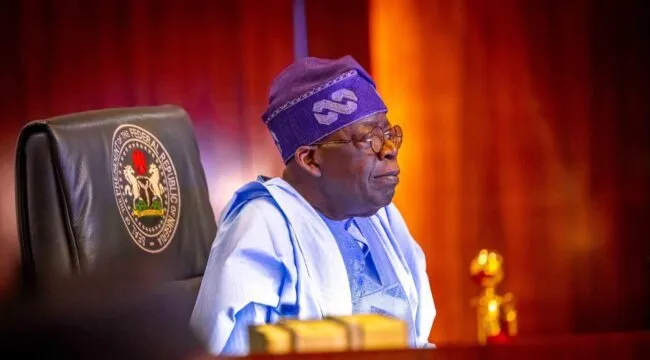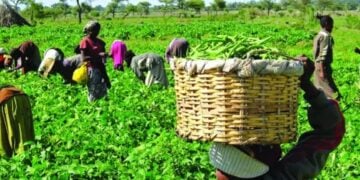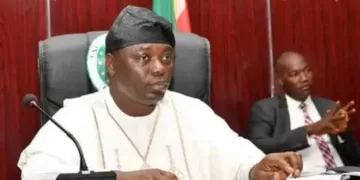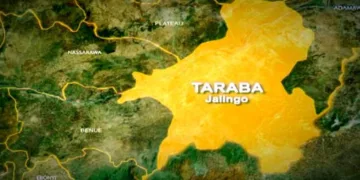Sometimes, history doesn’t march into view with drums and fanfare. Sometimes, it slips in quietly through the back door of a meeting room in Abuja, carrying a sheaf of memos and a polite smile.
Last Thursday’s National Economic Council (NEC) meeting may not have looked like history in the making. But in the Council Chambers of the State House, a blueprint was laid out that could either become the most transformative grassroots policy in decades — or just another ambitious idea gathering dust in the graveyard of Nigerian policy.
President Bola Ahmed Tinubu didn’t mince words. He urged governors to “wet the grass” — his now-viral metaphor for paying more attention to the ordinary Nigerian at the bottom of the pyramid. The phrase sounded almost whimsical, but the agenda behind it is anything but.
Enter the Renewed Hope Ward Development Programme (RHWDP) — a clunky name for a deceptively simple idea: take Nigeria’s economic reforms out of the spreadsheets and press briefings, and drop them, like rain, onto every one of Nigeria’s 8,809 wards.
At least 1,000 economically active persons per ward — that’s the promise. That’s more than 8.8 million Nigerians targeted for direct support, job creation, and micro-enterprise kick-starts.
The Minister of Budget and Economic Planning, Atiku Bagudu, framed it as the “historic next step” after Tinubu’s reforms stabilised the macroeconomy.
“Having stabilised the macro-economy, the next step is to drill development down to the lowest levels,” Bagudu said, “so that, in all 8,809 wards, we can stimulate economic activity that will generate employment, reduce poverty, enhance food security, and strengthen social protection.”
If that sounds like technocratic poetry, that’s because it is. But strip away the policy jargon and here’s the bottom line:The Tinubu administration is betting its legacy on the idea that Nigerians will “feel” reform only when it shows up in their ward.We talk a lot about Abuja, about Lagos, about the governors’ mansions in Port Harcourt and Kano. But the real Nigeria? The Nigeria that votes, hustles, and hopes? That Nigeria is carved into wards.
Wards are the smallest political units, the “last mile” of governance. They are where the village square meets the ballot box, where a local school’s broken fence can swing an election.
For decades, Nigerian leaders have launched policies with grand ambition — but somewhere between the Federal Executive Council and the farmer in Gwoza, the message, the money, or the will dries up.
RHWDP is a gamble that this time will be different.Tinubu isn’t just pushing policy; he’s pushing urgency.
At NEC, President Tinubu practically pleaded with governors: “I want to appeal to you; let us change the story of our people in the rural areas. The economy is working. We are on the path of recovery, but we need to stimulate growth in the rural areas. We know the situation in the rural areas, let us collaborate and do what will benefit the people.”
This wasn’t vintage oratory. It was part pep talk, part warning. Because Tinubu knows this: Nigeria’s patience is short. Nigerians don’t want to hear that IMF reports are happy. They want to see the price of garri drop. They want to see boreholes fixed, farms working, and jobs that aren’t just hashtags.
On paper, RHWDP is beautifully structured.
- Funding: Federal, state, and local governments will pool cash — boosted by record FIRS collections (₦14.9 trillion in the first half of the year).
- Oversight: A National Steering Committee (with reps from all six geo-political zones) will sit on top of it.
- Legal roots: It’s grounded in Chapter Two of the Nigerian Constitution.
It all sounds airtight. But Nigerians have heard “airtight” before.Because here’s the thing: rolling out a plan in 8,809 wards means 8,809 potential choke points.Will the money actually reach the farmer in Bende, the tailor in Gusau, the trader in Agege? Or will it vanish into the same black hole where so many “people-centred” programmes have died before?
Tinubu’s team insists this one is different. The President is pushing federal-state cooperation like never before.But he’s also trying to herd the usual Nigerian cats: governors with competing agendas, local government chairmen with itchy fingers, and party structures that see every project as a campaign platform.
Imo State Governor Hope Uzodinma didn’t sugarcoat it. “The country is earning more money now, and so are subnational governments,” he said. “The president brought a programme that will fast-track the process of this additional money making a bigger impact by trickling down to the grassroots. This is how Nigerians will begin to feel the Renewed Hope agenda at their level.”
Translation: The money is there. The question is whether the delivery will be there.
The NEC meeting wasn’t just about jobs and wards. It also wrestled with a seasonal nightmare: floods.The National Emergency Management Agency (NEMA) gave a sobering briefing:
- Forecasts show heavier rains in 2025.• Drainage systems are collapsing.• State emergency agencies (SEMAs) are weak.• Local committees are inactive.
The council’s response? More money, more coordination, and a warning to states:Fix your drainage. Enforce your building codes. Don’t wait until half your state is underwater to start scrambling.It was a reminder that even the best development plan will fail if it’s washed away by the next flood.
Here’s the blunt truth: RHWDP isn’t just policy. It’s politics.If it works — if Nigerians in every ward see tangible change — Tinubu will own that narrative heading into 2027.
If it flops — if it becomes another bloated programme with fanfare at the top and frustration at the bottom — the opposition won’t need to say much. The dry grass will speak for itself.What’s striking is how much Tinubu is tying his legacy to these kinds of programmes.He isn’t just talking about big highways and shiny airports. He’s talking about mechanised agriculture in Kwami Ward, about school-feeding in Ikere Ward, about 1,000 micro-entrepreneurs per ward.
This is a president thinking about small politics on a big scale.Let’s be honest: this is an enormous administrative challenge.8,809 wards. 1,000 people each. That’s nearly 9 million individual stories.Somewhere, a tailor will get a sewing machine.
Somewhere, a farmer will get an irrigation pump. Somewhere, a local road will finally be fixed.But somewhere else, money might be siphoned. Somewhere else, a party chairman might turn the list into a patronage tool.The programme’s success will hinge on something Nigeria has rarely mastered: execution.In the NEC chamber, President Tinubu wasn’t just giving a policy speech.
He was issuing a challenge — to governors, to local officials, to himself.
He said:“the economy is working. We are on the path of recovery, but we need to stimulate growth in the rural areas.”In other words: the numbers look good, but numbers don’t vote. People do.
The Renewed Hope Ward Development Programme is a bold swing. If it lands, it could rewrite the relationship between Abuja and the grassroots.If it misses, it will be another painful entry in Nigeria’s long catalogue of missed opportunities.
Either way, Tinubu’s words will linger:
“Wet the grass.”Because in Nigeria — and in politics — nothing grows on dry ground.











